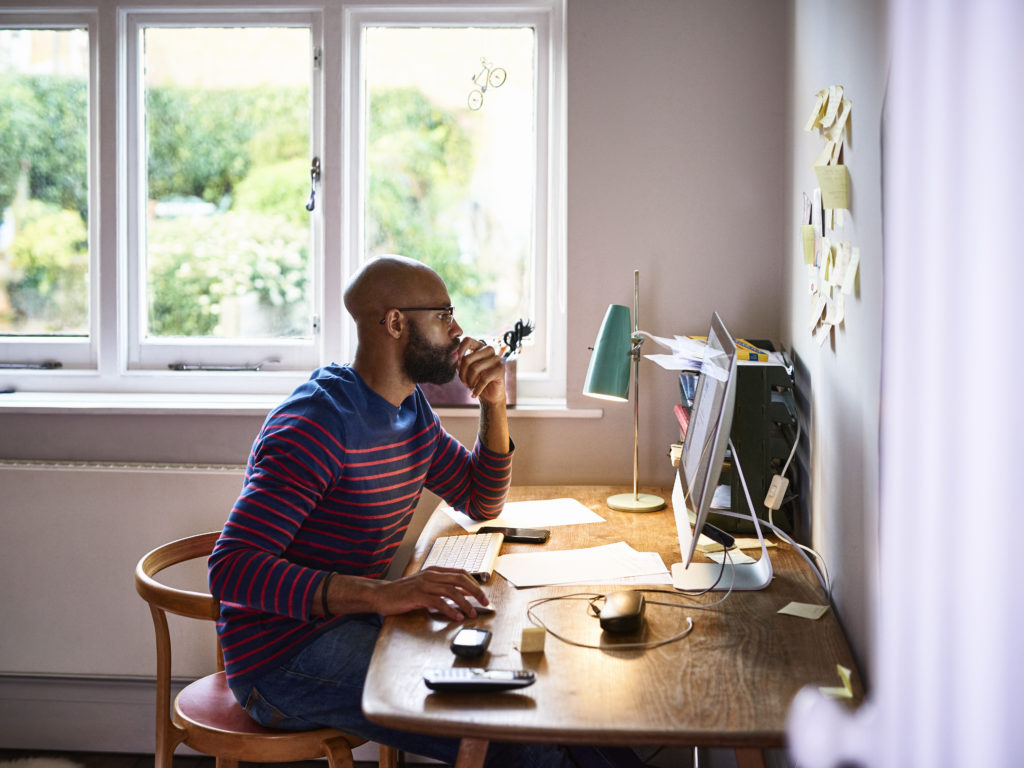The stigma has to be broken because modern offices are not best suited for all kinds of important work. And with companies expecting more and more from employees, integrating 24/7 communication into running effective work lives means being productive in all environments.
The first trick with working from home is dealing with your own guilt or anxiety about being away from peoples’ eyes. Many people talk about having to be even more vigilant of emails and phone calls when they are at home, because they don’t want anyone thinking that they are slacking off. This leads to a state of mind which is exactly opposed to working effectively away from the office.
The intention of working from home, is to make progress on sticky or complex tasks. Having a conducive environment to focus on work and getting things done, means having a clear head. Free from anxiety and guilt about it.
The way to tackle this guilt is communicating with people clearly about being at home, and what you are doing whilst you are there. Not over-compensating but getting rid of other peoples’ judgement and emphasizing the importance of working arrangements that suit you.
The second reason for working from home, is to not have to commute to and from work every single day, giving you more time and energy to get work done. Therefore, the extra half hour in bed, the more relaxed morning with your family and opportunity to get home jobs done is using your time effectively. It is not slacking off.
25 million people in America spend more than 90 minutes commuting to their work. In the UK the average commute is 54mins. Commuting ranks number 1 for the most stressful part of one’s day. Workers with a lengthy commute feel more anxious, and less satisfied with life. They are more exhausted and less productive at work. There is such a strong argument for business to support people working from wherever they like.
Here are some techniques to use when working from home to be effective and productive:
Timebox:
Set a timer for 40mins – 1 hour and work on something for that length of time, without doing anything else. It is called mono-tasking and is the opposite of multitasking which is proved to be counterproductive. Have two or three things to complete and just focus on them until they are done.
Take breaks:
After these bursts of concentration take time to reset. Just ten minutes or so. Have a cup of tea, walk in the garden, put your washing on. A change in activity is better for refreshing and re-energising than keeping going.
Leading into other techniques – do your home tasks. It is critical to your sense of achievement that you are getting both work and home jobs done. It is not detracting from your productivity from work. In fact, it is increasing your self-confidence which is a good thing.
Spend time in nature:
Natural surroundings are proven to be very good for recuperating, energising, creativity. Even if it’s sitting in a park, looking up at the sky, standing in the rain or walking around your garden. Too often we are concentrating so much on the next task that we forget to pay attention to beauty. Doing so, rejuvenates our brain.
Find Space:
In your house, you should have an area that is really good for working and zoning in. If you are sat working, looking at a pile of washing up, your attention will wander very quickly. If you are sat in front of the tv, then temptation may be strong. A simple place where you cannot be disturbed by others, distracted by other things and is comfortable for working.
Turn off your phone:
It’s a novel and difficult practice but knowing that your social media, email feeds, texts, WhatsApp etc will be there in an hour when you switch it back on. These are ridiculously draining on our mental capacity.
For more help on making the most of your time at work or at home check out our time management and productivity courses.





